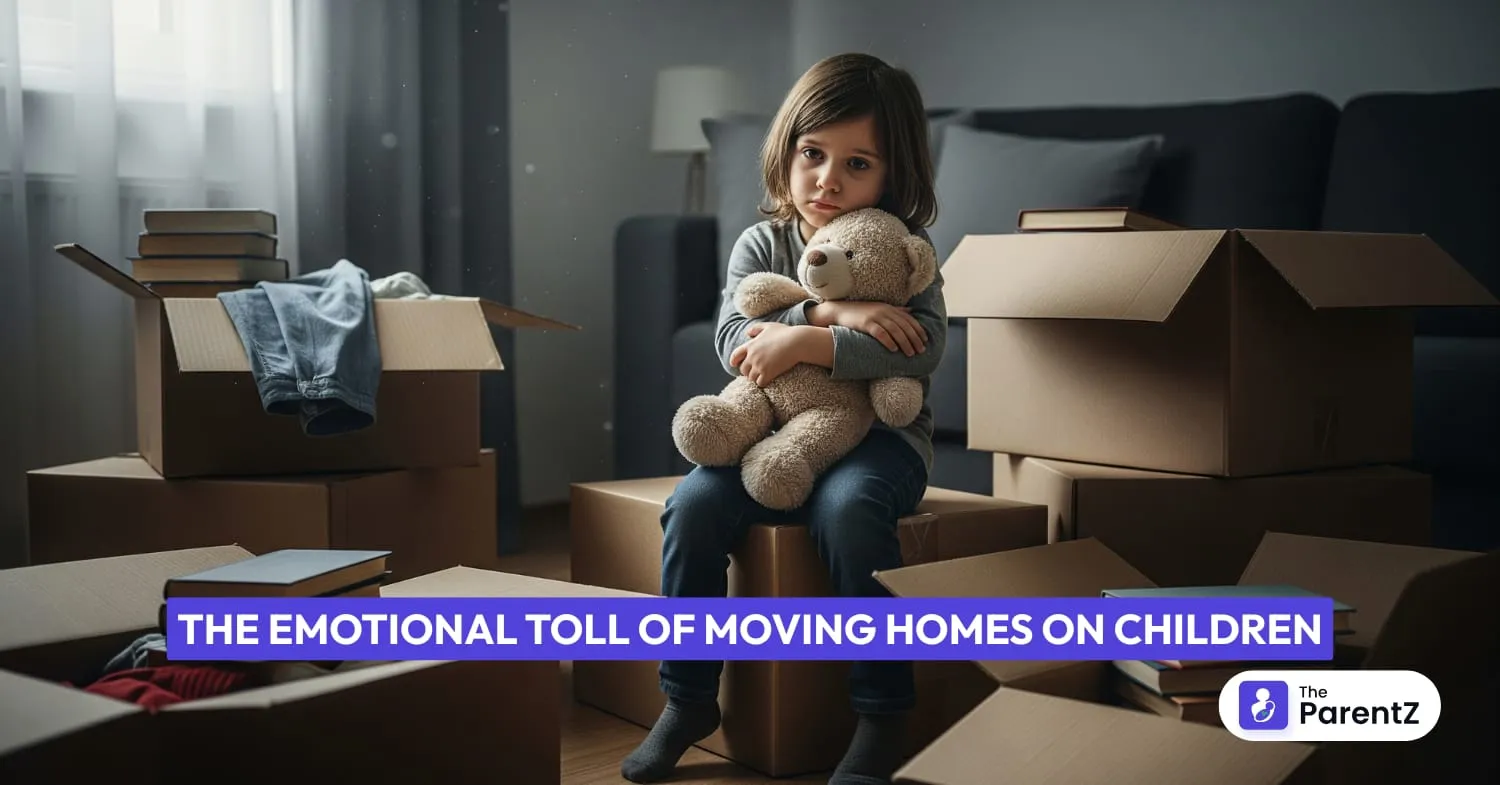If you're reading this, chances are you're either planning a move or you've already moved several times with your kids. Maybe you're feeling guilty about uprooting them again. Maybe you're wondering if all this moving is hurting them.
Moving is hard. It's hard for us adults, and it's even harder for children who don't fully understand why their whole world keeps changing.
Why Families Move So Much These Days
Most of us don't move because we want to. Life happens. Your landlord decides to sell the house you've been renting for three years. Your company transfers you to another city. The rent goes up so much that you can't afford to stay. Sometimes you're chasing better job opportunities, better schools, or trying to be closer to family.
Some families move because of divorce or separation. Others move because they're trying to find a place where they can finally buy instead of rent. Military families move because that's just part of the job. And sometimes, families move because they're struggling financially and need to find something cheaper.
None of these reasons makes you a bad parent. You're doing what you think is best for your family. But that doesn't mean moving isn't tough on your kids.
What Moving Really Does to Kids
Children are creatures of habit. They find comfort in knowing where their bedroom is, which corner store has their favorite snacks, and which route they take to school every day. When you move, you're not just changing their address; you're changing their entire world.
- The younger your child, the harder it can be. Toddlers and preschoolers might not understand why they can't go back to their old house. They might ask for their old room or want to visit their old playground every day. They don't understand that "we moved" means "we can't go back."
- School-age kids face different challenges. They have to leave their friends behind, learn new school rules, and figure out where they fit in all over again. That best friend they've had since kindergarten? Now they can only talk to them over video calls, and it's not the same.
- Teenagers have it rough too. Moving during high school can feel devastating. They're already dealing with so much, like figuring out who they are, dealing with peer pressure, and thinking about college. Adding a move on top of that can feel overwhelming.
The Emotional Rollercoaster Your Child Might Experience
Every child reacts differently, but here's what you might see:
- Sadness and grief are normal. Your child is literally mourning the loss of their old life. They might cry more than usual or seem withdrawn.
- Anger is common too. They might be mad at you for making them move. They might act out at home or school. Don't take it personally – they're just trying to process big emotions.
- Anxiety about the unknown can show up as trouble sleeping, loss of appetite, or clinginess. They don't know what their new school will be like or if they'll make friends.
- Regression might happen. Your potty-trained toddler might start having accidents again. Your independent child might want to sleep in your bed.
- Some kids become extra quiet, while others might act out more. Both are normal responses to stress.
How to Help Your Child Through the Move
- Start talking early: As soon as you know you're moving, start preparing your child. Don't wait until the last minute. Use simple language and be honest about why you're moving.
- Let them have feelings: Don't try to talk them out of being sad or angry. Say things like, "I can see you're really sad about leaving your friends. That makes sense. I would be sad too."
- Involve them in age-appropriate ways: Let older kids help choose paint colors for their new room or research fun things to do in the new area. Give younger kids simple jobs like packing their toys.
- Keep routines as normal as possible: If you usually read bedtime stories, keep doing that even when you're surrounded by boxes. Familiar routines provide comfort during chaos.
- Don't make other big changes right now: Moving is enough change. Don't also try to potty train, switch daycares, or make other major changes at the same time.
- Create a memory book of your old home and neighborhood: Take pictures of their room, their friends, favorite places. Let them look at it whenever they want.
Making the New Place Feel Like Home
- Set up your child's room first. Before you worry about the living room or kitchen, make sure your child has a space that feels safe and familiar.
- Explore together. Take walks around the neighborhood. Find the closest park, library, and ice cream shop. Make it an adventure, not a chore.
- Be patient with the adjustment period. It can take months for a child to feel truly settled. Don't expect them to love the new place right away.
- Help them stay connected to old friends through video calls, letters, or visits when possible.
- Get involved in the community quickly. Join local activities, visit the library for story time, or check out community centers. The faster you build connections, the faster your child will feel at home.
When to Worry
Most children adjust to moving within a few months, but watch for signs that your child might need extra help: changes in eating or sleeping that last more than a few weeks, persistent sadness, problems at school, or aggressive behavior that's new and ongoing.
Don't hesitate to reach out to your child's teacher, school counselor, or pediatrician if you're concerned.
Conclusion
Moving with kids is one of the hardest things families go through. There will be tears, probably from both you and your children. There will be moments when you question if you made the right choice.
But children are more resilient than we give them credit for. With your love, patience, and support, they will adjust. They might even surprise you with how well they adapt.








Be the first one to comment on this story.